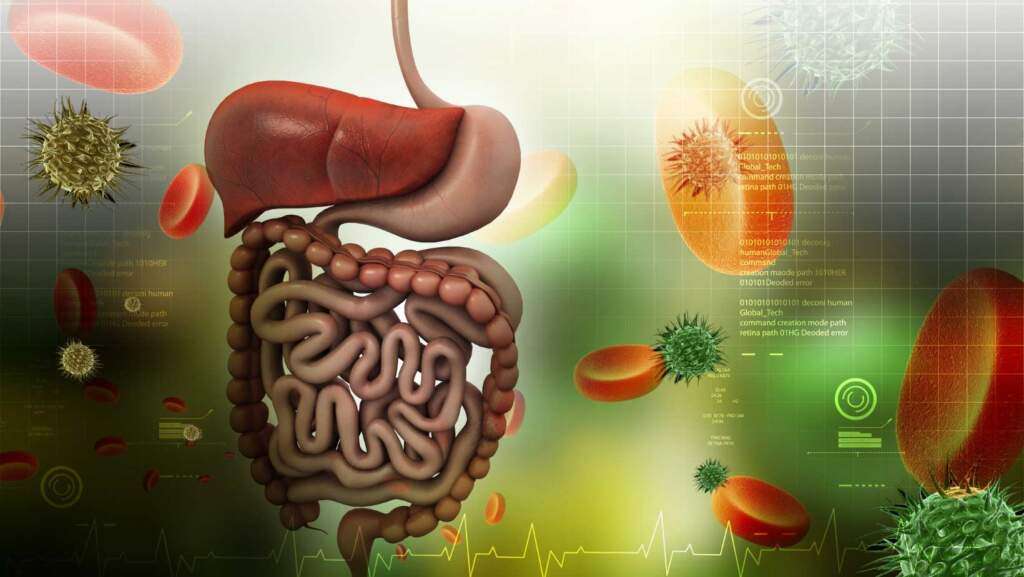In recent years, the focus on gut health has intensified, and for good reason. The state of our digestive system is closely linked to various aspects of our overall health, influencing everything from immunity to mental well being. The role of probiotics—beneficial live microorganisms that promote a balanced gut environment is central to this discussion. This blog will delve into probiotics, their benefits for digestive health, and practical ways to incorporate them into your diet. We’ll also highlight a top probiotic product, Flora Biotect, which can help you maintain optimal digestive health.
Table of Contents
Toggle
Probiotic For Digestive Health
Probiotics are often called “good” or “friendly” bacteria. These microorganisms naturally reside in various body parts, predominantly in the digestive tract. Our gut is a bustling ecosystem home to more than a trillion microorganisms—mainly bacteria, fungi, and viruses. Maintaining a balance among these microorganisms is crucial for a healthy digestive system. Unfortunately, factors such as poor lifestyle choices, infections, and medications can disrupt this delicate balance. This is where probiotics come into play. By replenishing and supporting the good bacteria, they help restore and maintain a healthy gut microbiome, ensuring a diverse and stable environment.
Functions of Probiotics for Digestive Health
- Restoring Gut Microbiome Balance : Our gut is home to a vast array of microorganisms, including both beneficial and harmful bacteria. Probiotics help restore and maintain a healthy balance by increasing the population of beneficial bacteria. This balance is essential for a well functioning digestive system.
- Improving Digestion : Probiotics assist in the breakdown of complex carbohydrates, proteins, and fats, making it easier for our bodies to absorb nutrients. This can lead to better Digestion and reduced symptoms of indigestion, such as bloating and gas.
- Supporting Immune Function : Most of our immune system resides in the gut. Probiotics strengthen the gut’s immune defenses by competing with harmful bacteria for resources and producing substances that inhibit their growth.
- Alleviating Gastrointestinal Illnesses : Probiotics can help manage symptoms of gastrointestinal disorders such as Inflammatory Bowel Disease (IBD) and Irritable Bowel Syndrome (IBS). They can reduce symptoms like diarrhea, bloating, and abdominal pain associated with these conditions.
- Enhancing Nutrient Absorption : Probiotics improve the absorption of essential nutrients, including calcium, iron, and B vitamins, by aiding Digestion and bioavailability.
- Promoting Regular Bowel Movements : Probiotics can help regulate bowel movements, preventing constipation or diarrhea and promoting regularity in the digestive system.
- Managing Food Allergies and Sensitivities : Emerging research suggests that probiotics may help reduce the risk of food allergies and sensitivities by modulating the immune response and promoting a balanced gut microbiome.
- Supporting Mental Health : The gut brain connection is a growing area of research. Some studies suggest that probiotics may positively impact mental health conditions like anxiety and depression by influencing the gut brain axis.
Scientific Evidence Supporting Probiotics
A growing body of scientific research supports the benefits of probiotics. For instance, a study published in the American Journal of Clinical Nutrition found that probiotics can significantly reduce the duration of diarrhea in children, highlighting their role in managing acute gastrointestinal disturbances. Another study from Gastroenterology demonstrated that probiotics could alleviate symptoms of IBS, including bloating and abdominal pain, which are common complaints among sufferers.
Further studies have explored the role of probiotics in enhancing the immune system. A study in the Journal of Nutrition found that certain probiotic strains could boost the body’s immune response by increasing the production of antibodies and activating immune cells. Additionally, research in Clinical Infectious Diseases suggests that probiotics can help prevent antibiotic associated diarrhea, a common side effect of antibiotic use, by restoring the balance of gut bacteria disrupted by the medication.
These studies underscore the potential of probiotics as a natural and effective way to support digestive health and overall well being.
Incorporating Probiotics into Your Diet
Integrating probiotics into your diet can be both simple and enjoyable. Consuming probiotic rich foods or supplements can help maintain a healthy balance of gut bacteria. Here are some ways to include probiotics in your daily routine:
- Yogurt : Yogurt is one of the most well known sources of probiotics. It is made by fermenting milk with specific bacterial cultures. Regular yogurt consumption, 1 2 servings daily, can improve colon health and support overall digestive function.
- Buttermilk : Traditional buttermilk, the liquid leftover after churning butter, is rich in probiotics. It can be consumed as a beverage or used in various recipes.
- Traditional Fermented Foods : South Indian cuisine, which features predominantly fermented foods, is excellent for gastrointestinal health. Foods like Idli and Dosa are rich in probiotics and can be easily incorporated into your diet.
- Fermented Vegetables : Fermented vegetables such as sauerkraut (fermented cabbage), kimchi (fermented Korean vegetables), and pickles (fermented cucumbers) are excellent sources of probiotics. They can add flavor and variety to your meals while supporting gut health.
- Kombucha : Kombucha is a fermented tea that is naturally effervescent and contains probiotics. It is available in various flavors and can be found in many health food stores.
Maintaining a balanced diet and avoiding processed foods is crucial for colon health. Incorporating various probiotic rich foods can help sustain a healthy gut microbiome and improve your digestive well being.
Product Highlight: Flora Biotech
If you’re looking for a convenient and effective way to boost your probiotic intake, consider Flora Biotect. This supplement features a carefully selected blend of beneficial bacteria designed to support your digestive health. Flora Biotect includes strains such as Lactobacillus and Bifidobacterium , known for their efficacy in balancing gut flora and enhancing Digestion. Here’s a closer look at how Flora Biotect can benefit you:
- Key Ingredients : Flora Biotect contains a proprietary blend of probiotic strains, including Lactobacillus and Bifidobacterium, which are clinically proven to support gut health. These strains help restore and maintain a healthy balance of microorganisms in the gut, improving Digestion and nutrient absorption.
- Digestive Support: The probiotics in Flora Biotect aid in the breakdown of food, enhancing nutrient absorption and reducing symptoms of indigestion. They can also help alleviate bloating, gas, and discomfort, making your digestive system more efficient.
- Immune Function: Flora Biotect supports a healthy gut microbiome and a stronger immune system by supporting the gut’s immune defenses. The probiotics in this supplement help protect against harmful bacteria and strengthen the gut’s immune defenses.
- Usage Recommendations : Flora Biotect is formulated to be gentle on the stomach, making it suitable for daily use. To incorporate this supplement into your routine, simply follow the dosage instructions on the packaging. Regularly using Flora Biotech can help maintain a healthy digestive system and improve overall well being.

Potential Side Effects and Considerations
While probiotics are generally safe for most people, they can cause mild side effects in some cases, such as gas or bloating. These symptoms are usually temporary and resolve as your body adjusts to the increased intake of probiotics. However, individuals with compromised immune systems, severe illnesses, or recently undergone surgery should consult a healthcare provider before starting probiotics. It’s also advisable to start with a lower dose and gradually increase it to allow your body to adapt.
It’s essential to choose high quality probiotic supplements that provide sufficient live organisms. Look for products that list the specific strains and their colony forming units (CFU) to ensure efficacy. Storing probiotics according to the manufacturer’s recommendations is crucial to maintaining their potency.
Conclusion
Incorporating a probiotic for digestive health can profoundly impact your overall well being. Probiotics support a balanced gut microbiome, enhance Digestion, and bolster immune function, making them an invaluable addition to a healthy lifestyle. Whether you choose to consume probiotic rich foods or supplements like Biotect, adding probiotics to your daily routine is a step towards better digestive health. Remember, it’s always wise to consult a healthcare professional before starting any new supplement to tailor your approach to your specific needs.
With the growing awareness of the importance of gut health, incorporating probiotics into your diet is a proactive way to support your digestive system. By choosing suitable probiotic sources and products, you can enjoy the benefits of a healthy gut and improved overall health.


